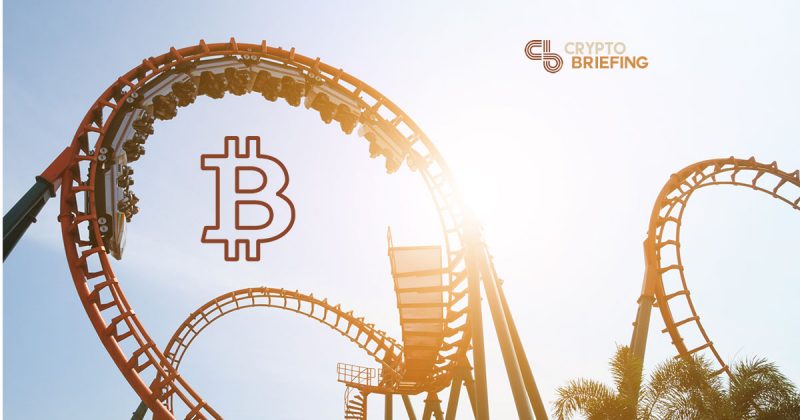
Bitcoin Drops Show Why We Still Need A Stable Store Of Value
Existing stablecoins aren't stable enough.
Bitcoin continues to form the basis for the entire crypto economy. One need only look at price graphs to see that the majority of cryptocurrencies continue to follow the dips and rises of the original digital cash.
But this isn’t necessarily a positive for the blockchain ecosystem. Bitcoin remains incredibly volatile, as illustrated by the most recent price leap and fall. If the crypto economy is to thrive, we need a viable stablecoin that can be counted on to retain value over time.
Bitcoin Remains at the Core of the Crypto Economy
Bitcoin is ubiquitous in the crypto landscape, and during the ICO craze of 2017, it was often used as the currency of choice for token purchases. It’s also the first digital currency for most new crypto investors, and is easily accessible on Coinbase and other platforms. Many exchanges rely on holders using bitcoin as a “base currency” to purchase other cryptos.
The problem with relying on bitcoin is that its price is highly unpredictable. Maybe not compared to other cryptocurrencies, but few fiat currencies change in value so dramatically over the course of a few days or even hours.
The Importance of Safe Investments
Outside of the crypto world, startups that raise funding generally work with a financial manager to safeguard their finances and ensure they have ample runway to develop the product, pay employees, and meet the milestones articulated to investors.
Financial managers typically invest the startup’s capital in safe investments that have proven track records of appreciating in value gradually over time. These reliable investments can include treasury securities, government bond funds, and municipal bond funds as well as certificates of deposit and money market accounts. The reason many of these investment vehicles are considered secure is because they are backed or insured by the federal government.
Backing by the federal government is reassuring as long as trust in the government’s ability to repay its loans is unquestioned. For this reason, respected economists like hedge fund manager and billionaire investor Ray Dalio have often warned of the dangers of the United States accumulating national debt. As the debt grows, it becomes more difficult for the government to maintain international faith in its ability to repay its loans.
Stablecoins Can’t Solve Economic Woes (Yet)
Cryptocurrencies actually solve the issue of over-reliance on government backing for monetary value: they are borderless and do not depend on validation from any third party, including governments and banks.
But this brings us back to the problem of volatility.
Stablecoins attempted to address this obstacle by promising a stable value over time, by pegging their values to a predictable asset, fiat currency, or basket of assets/currencies. Unfortunately, no stablecoin to-date has successfully made good on this promise.
The most well-known stablecoin is Tether, which was supposedly backed 1:1 to USD. But earlier this year doubts surfaced as to whether the stablecoin actually had an equal amount of USD in reserve.
The following scandal led to Tether’s general counsel admitting that the stablecoin is about 74% backed by fiat equivalents. One of Tether’s attorneys argued that Tether need not “hold $1 in cash fiat currency for every dollar of tether.” Though Tether’s trading volume remains high, this admission severely undermines the stablecoin’s promise of providing a trusted and stable currency.
Crypto Still Needs a Predictable Stable Store of Value
Other stablecoins that have caught the media’s attention include Gemini Dollar and USDC, both pegged to USD like Tether. But, contrary to popular belief, USD is not a stable currency. Like any fiat currency, the U.S. dollar is subject to inflation and market impacts from political or environmental forces.
The crypto economy needs a viable stablecoin solution if it is to flourish independent from fiat markets. Individuals, businesses, and other organizations are counting on it.
Daniel Popa is the Founder and CEO of The Anchor, a stablecoin project. Crypto Briefing does not accept any payment or financial benefit from expert guest authors.
If you are a blockchain expert with an interest in sharing your knowledge and experience, please contact our Managing Editor, Jon Rice, via email at editor AT cryptobriefing.com
